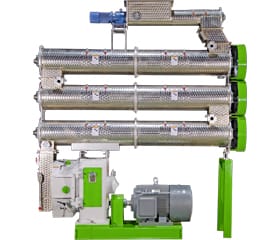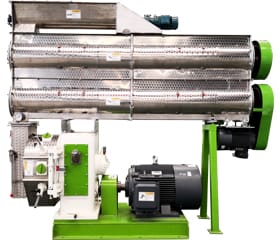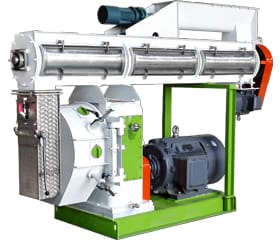Adding salt to chicken feed should be cautious, it may cause heavy losses
A chicken farmer asked us today, saying that his chickens have no appetite, they like to drink water, their bodies are weak and uncoordinated, and their crops are larger than normal chickens. Anatomy showed that the crop mucosa fell off with mucus inside, the glandular stomach was congested, and the small intestinal mucosa had bleeding spots. According to the performance of the chicken flock and the situation of the chicken farm introduced by the chicken farmers, other possibilities were basically ruled out, and the chicken salt poisoning was temporarily diagnosed.
The experience of this chicken farmer reminds me of an article on the Internet advocating feeding chickens with salt. In fact, looking at various breeding websites now, you can always see a lot of content, saying that it is to add salt to chicken feed. So, should chicken farmers really feed their chickens with salt? What are the advantages and disadvantages of adding salt to chicken feed?

Humans eat salt first for taste, and not many people like to eat food without salt; secondly, for physiological health, salt can supplement the elements needed by the human body, adjust the acid-base balance, maintain the osmotic pressure of extracellular fluid, and so on. For chickens, the truth is the same. Adding salt to chicken feed can improve the palatability of the feed and increase the appetite of the chickens. In addition, table salt can supplement the nutrients needed by chickens, promote digestion, and have the effects of sterilization and prevention of chicken diseases.
Some chicken farms have chicken pecking addiction, poor appetite, indigestion, slow growth of chicks, etc. It may be a lack of sodium and chlorine. At this time, you may only need to add some salt to the feed to solve the problem. However, humans know that eating too much salt is not good, so they control their own salt intake, but chicken farmers often don't know the dosage when feeding chickens. As a result, the effect is not achieved if the amount is small, and the chicken is poisoned if the amount is large.
In addition to the symptoms mentioned at the beginning, chicken salt poisoning may also have surface symptoms such as mucus in the mouth and nose, convulsions, and difficulty breathing, as well as subcutaneous edema, pulmonary edema, pericardial effusion, obvious thick blood, bleeding spots in the heart, etc. Anatomy of symptoms. Severe salt poisoning chickens may eventually collapse and die. Therefore, chicken farmers must pay attention to the dosage of salt feeding. Here are two tips for everyone.
1. Adding salt to chicken feed is mainly to supplement the two elements of chlorine and sodium. However, many chicken farmers now mix some additives into the feed. Sometimes, the additives may have been supplemented with sufficient relevant elements. Even some supplementary feeds already contain salt, such as salted fish meal. At this time, if the chicken farmers add salt to the feed, it may cause excessive amounts.
2. Add salt to the chicken diet. The amount must be very precise. The usual standard is to mix less than five thousandths of salt, and more than three thousandths of salt in the feed, and it needs to be fully stirred to ensure uniformity. Once the limit is exceeded, it may cause chicken salt poisoning. If the limit is exceeded, it may directly cause death. It is reported that the salt content in the drinking water of the chicks reaches 9 per thousand, and the chicks are bound to die.
After chicken farmers discover chicken salt poisoning, they should immediately analyze the cause of the poisoning, stop feeding the corresponding feed, and provide a lot of clean drinking water to promote the reduction of the salt concentration in the chicken body and accelerate the excretion of the chicken. In addition, chicken farmers can give poisoned chickens an intravenous injection of 1ml to 3ml of 25% glucose water to maintain their heart function.
The above is about chicken feeding salt, as well as the symptoms and treatment of chicken salt poisoning.
[More info about chicken feed and breeding]
(1)Complete chicken feed pellet production line
(2)5 ton per hour poultry chicken feed processing plant
(3) corn grinder crusher for chicken feed
(4)30t/h automatic complete poultry chicken feed pellet line with factory price
(6)1 ton per hour poultry chicken feed pellet making plant
(7)Turkey chicken feed mill manufacturers
If you want to built one complete pellet production line in your country, pls send the inquiry to us. We will customized design according to your requirement.



